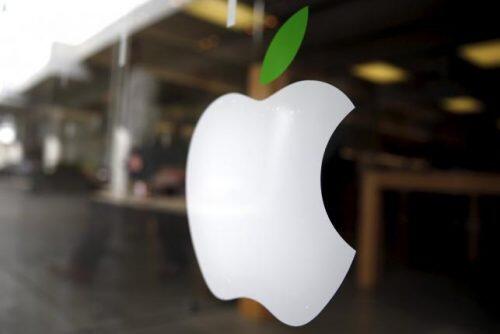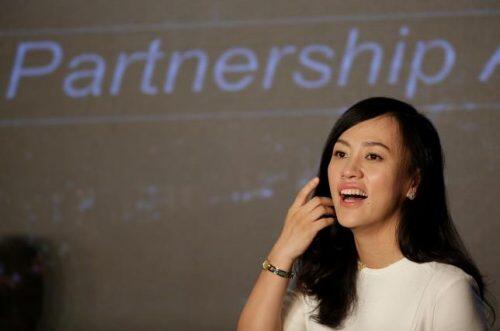Apple Inc. said on Thursday it has invested $1 billion in Chinese ride-hailing service Didi Chuxing, a move that Apple Chief Executive Tim Cook said would help the company better understand the critical Chinese market.
The tech giant’s rare investment gives it a stake in two burgeoning waves of technology – the sharing economy and car technology – as the iPhone business that propelled it to record profitability shows signs of maturing.
Apple is trying to reinvigorate sales in China, where it has come under greater pressure from regulators, and Cook is traveling to the country this month.
An Apple store is seen in Los Angeles, California, United States, April 22, 2016. Apple Inc (AAPL) will report its second quarter results April 26. Picture taken April 22, 2016. REUTERS/Lucy Nicholson
The move aligns Apple with Uber Technologies Inc’s chief rival in China, as automakers and technology companies forge new alliances and make cross investments. General Motors, for example, recently bought autonomous driving technology company Cruise Automation and has also taken a stake in U.S. ride-sharing company Lyft.
Cook said in an interview that he saw opportunities for Apple and Didi Chuxing to collaborate in the future.
“We are making the investment for a number of strategic reasons, including a chance to learn more about certain segments of the China market,” he said. “Of course, we believe it will deliver a strong return for our invested capital over time as well.”
Didi Chuxing, formerly known as Didi Kuaidi, said in a statement that the funding from Apple was the single largest investment it has ever received. The company, which previously raised several billion dollars, dominates the ride-sharing market in China. The company said it completes more than 11 million rides a day, with more than 87 percent of the market for private car-hailing in China.
Jean Liu, the president of Didi Chuxing, formerly known as Didi Kuaidi, answers questions at a news conference in Beijing, China, January 26, 2016. REUTERS/Jason Lee/File Photo
“CONFIDENCE IN CHINA”
Analysts say the deal offers a glimpse of how Apple may diversify its business as sales of the iPhone level off. Apple has emphasized its burgeoning revenue from services such as Apple Music and mobile payment Apple Pay, a strategy that the ride-sharing investment appears to reinforce, said analyst Patrick Moorhead of Moor Insights & Strategy.
“After all the hints about the service business and what they would like to do in the future, it’s all starting to fit together,” he said.
Investors are eagerly watching to see whether Apple will enter the automotive business. Apple has hired a wide range of automotive experts, and the company is exploring building a self-driving car, sources have told Reuters.
Apple reaps much higher margins on the iPhone than most auto makers enjoy, but the investment suggests that the tech giant is contemplating transportation services that could prove more lucrative, said Bob O’Donnell, an analyst with TECHnalysis Research.
“This investment shows they are thinking not just about cars but business models around transportation, and that is a very encouraging and interesting sign,” he said.
Cook said Apple remained focused on the in-car experience with its CarPlay system, which links smartphones to vehicle infotainment systems.
“That is what we do today in the car business, so we will have to see what the future holds,” he said.
Although Apple’s sales in China have slumped amid slowing economic growth there, Cook stressed he remained confident in the market.
“(The deal) reflects our excitement about their growing business … and also our continued confidence in the long term in China’s economy,” Cook said.
Apple has enjoyed warmer relations with the Chinese government than some American tech companies, but regulators recently shut down its online book and film services, triggering concerns among investors. The true value of Apple’s investment in Didi might be in shoring up that relationship, said analyst Ben Bajarin of Creative Strategies.
“This is as much about sending signals about their seriousness in that country as it is about helping Didi build a ride-sharing platform,” he said.
Source: REUTERS













